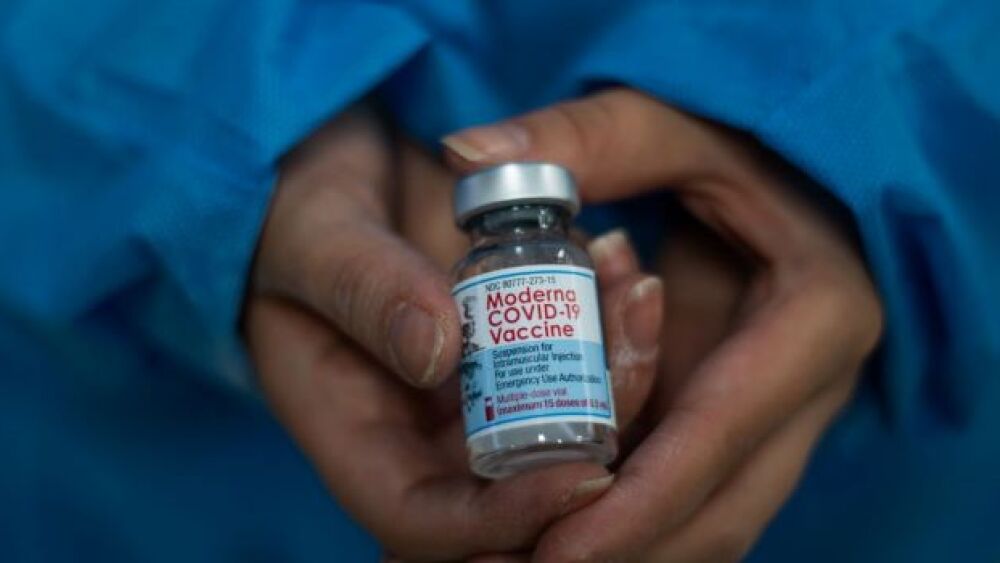As governments and now even businesses push citizens to get vaccinated against COVID-19, anti-vaxxers are loading up more ammo for their argument with this week’s report.
Ximena Rubio/Long Visual Press/Universal Images Group via Getty Images
As governments and now even businesses push citizens to get vaccinated against COVID-19, anti-vaxxers are loading up more ammo for their argument with this week’s report.
In June, the CDC released information about a possible connection between rare cases of myocarditis or pericarditis and the mRNA vaccines developed by Moderna and Pfizer. It was reported that cases were extremely rare when considering the number of jabs given. Between the two brands, it reportedly averaged out to 12.6 cases per million doses.
Now health officials are looking into Canadian data that suggests the risk of heart inflammation after Moderna’s shot is occurring at higher rates in younger adults than previously believed. The Post quoted a source saying the myocarditis risk could be 2.5 times higher for those who receive the Moderna vaccine over Pfizer’s shot. Males under 30 appear to be the most at risk of developing the side effect with either vaccination.
Myocarditis is inflammation of the heart muscle. Viral infection is the most common cause, so its link to COVID-19 is no surprise. It’s important to note that research shows the heart inflammation symptom is far more common with the virus than it has been with the vaccine, again, particularly in men and boys under 30.
A study in the U.S. found that males from 12 to 17 were the most likely to develop myocarditis within three months of testing positive for COVID-19. The rate is significantly higher – 450 cases per million infections.
“If you’re focused on heart inflammation, the safer bet is to take the vaccine,” said Mendel Singer at Case Western Reserve University in Ohio, who helped carry out the study.
As of now, the FDA Fact Sheet for Moderna’s shot says “Myocarditis and pericarditis have occurred in some people who received the Moderna COVID-19 vaccine.... The chance of having this occur is very low.” (Exact verbiage also used on Pfizer-BioNTech’s vaccine fact sheet)
The agency advises seeking medical attention if you have chest pain, shortness of breath, or feelings of fast-beating, fluttering or pounding heart after receiving either vaccine. These warnings were added in late June when heart inflammation occurrences were first linked to the mRNA vaccines.
These cases of heart inflammation have generally not been severe.
“Most commonly there is some acute chest pain for several days and then symptoms will rapidly taper off,” explained Timothy Wong, MD, MS, Assistant Professor of Medicine at the University of Pittsburgh Medical Center (UPMC) and Director of the UPMC Heart and Vascular Institute Cardiovascular Magnetic Resonance Center.
“Some of the patients have been prescribed anti-inflammatory medications, some have just used over-the-counter ones, and some have not used any medications to recover.”
Heart function has remained ok through the inflammation episode. Wong emphasized that cases of myocarditis resulting from COVID-19 infection are much more commonplace than those caused by the vaccines.
Investigation into the incidence rate with Moderna’s vaccine will continue.






